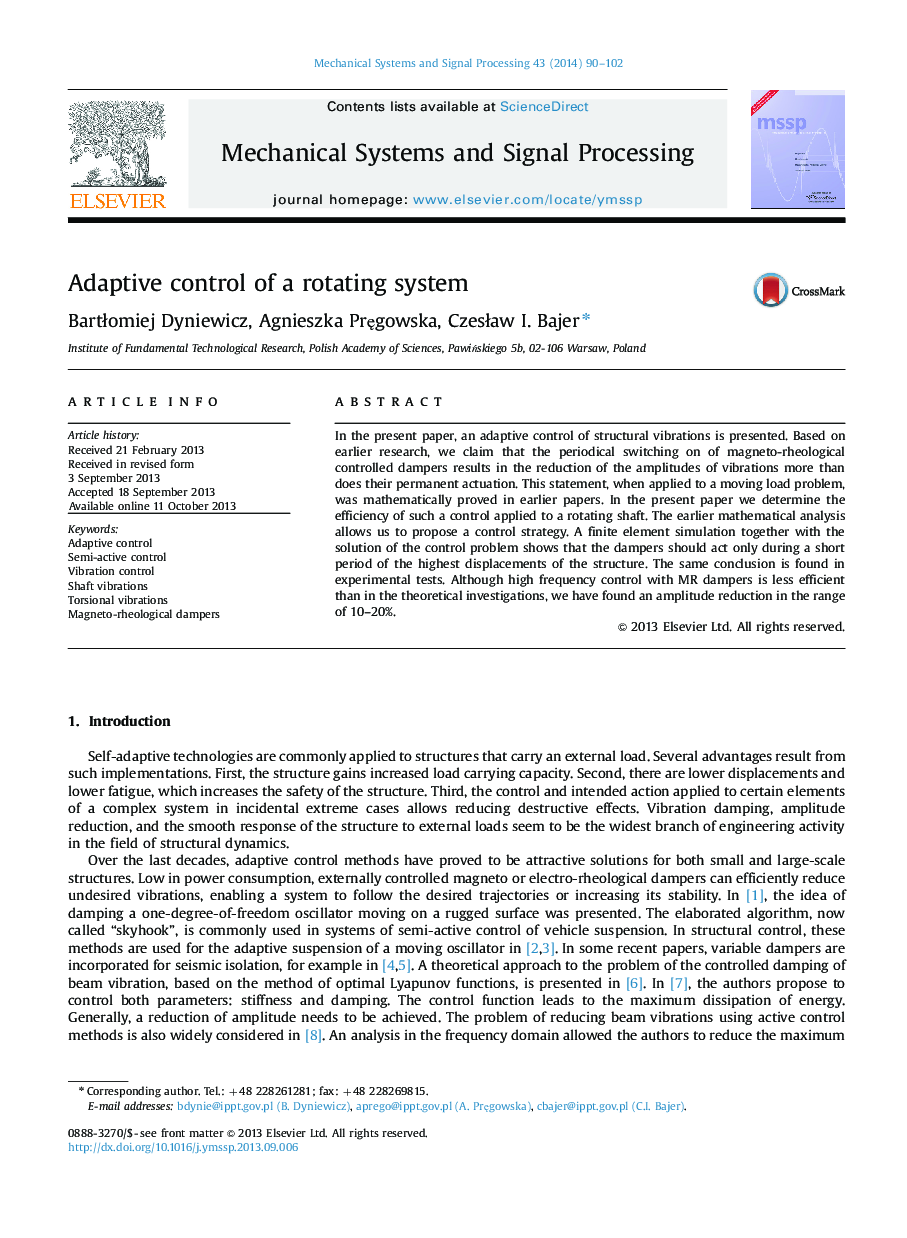| Article ID | Journal | Published Year | Pages | File Type |
|---|---|---|---|---|
| 560558 | Mechanical Systems and Signal Processing | 2014 | 13 Pages |
•Adaptive control of a rotating shaft is proposed.•Magneto-rheological actuators reduce amplitudes of torque.•Analytical and numerical investigations.•Experimental verification proved the efficiency of the approach.•Dampers should act only during a short period of the highest displacements.
In the present paper, an adaptive control of structural vibrations is presented. Based on earlier research, we claim that the periodical switching on of magneto-rheological controlled dampers results in the reduction of the amplitudes of vibrations more than does their permanent actuation. This statement, when applied to a moving load problem, was mathematically proved in earlier papers. In the present paper we determine the efficiency of such a control applied to a rotating shaft. The earlier mathematical analysis allows us to propose a control strategy. A finite element simulation together with the solution of the control problem shows that the dampers should act only during a short period of the highest displacements of the structure. The same conclusion is found in experimental tests. Although high frequency control with MR dampers is less efficient than in the theoretical investigations, we have found an amplitude reduction in the range of 10–20%.
